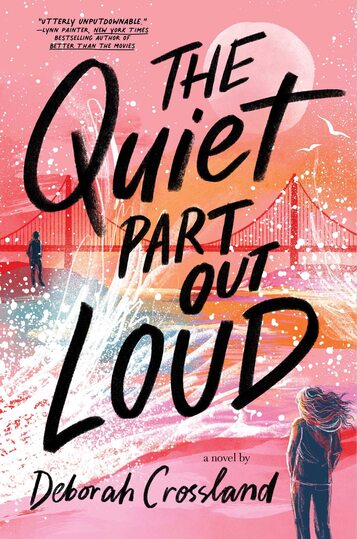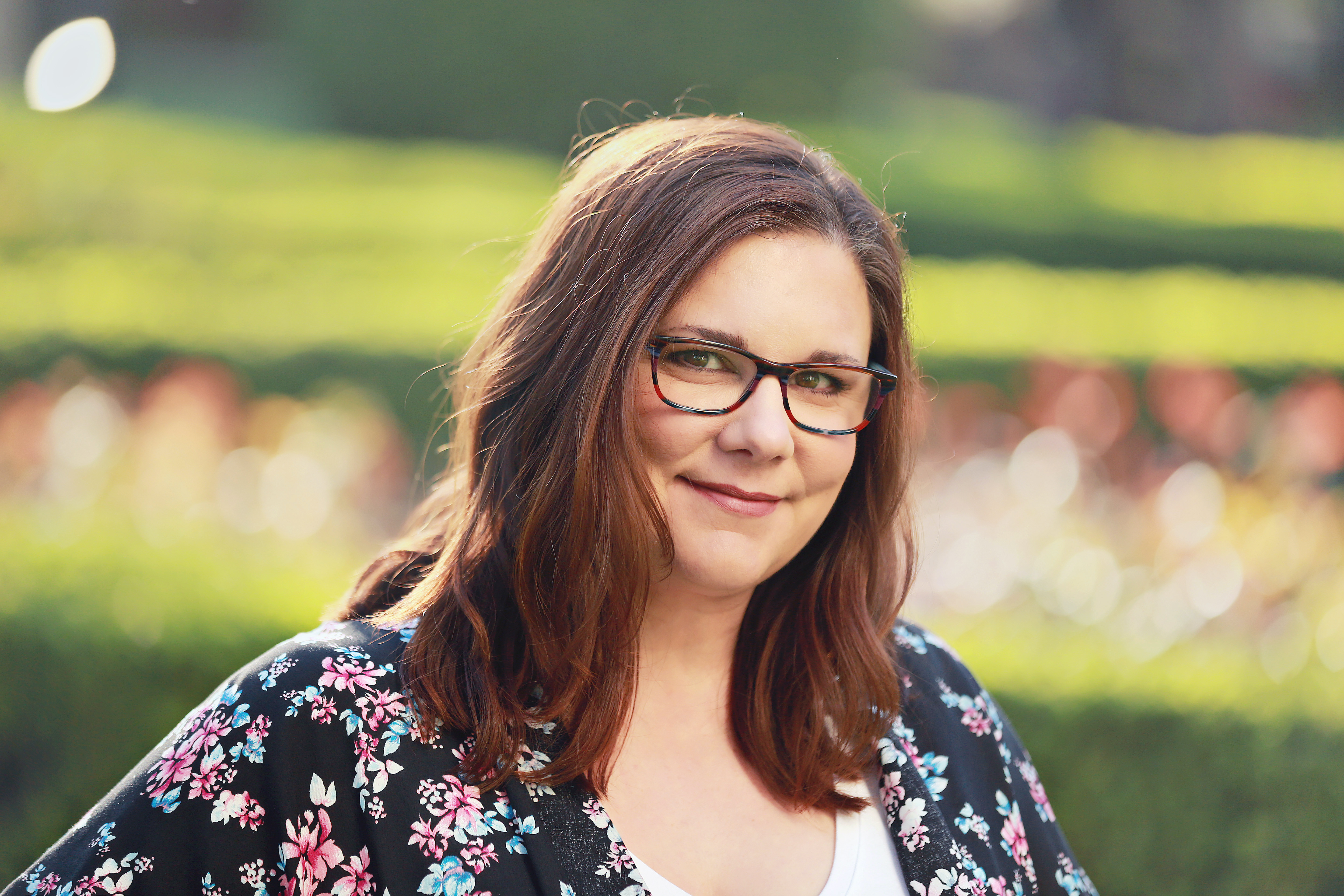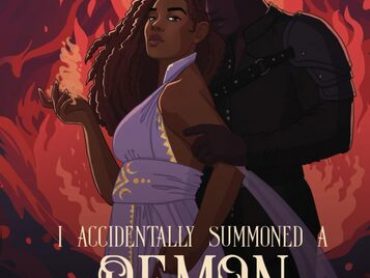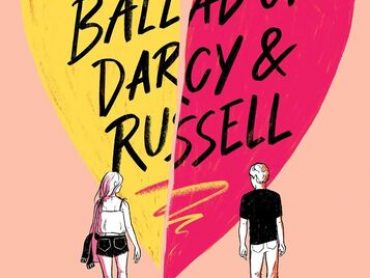Deborah Crossland is the author of The Quiet Part Out Loud. The Quiet Part Out Loud follows Mia Clementine and Alfie Thanasis who plan to escape their town for college in the east. The novel explores love, heartbreak, and hope. YEM was able to speak with Deborah about setting the book in San Francisco, her writing process, and her favorite book genre.
Young Entertainment Mag: When did you first know that you wanted to be an author?
Deborah Crossland: I have loved reading and books since I can remember. My mom was a fantastic story-teller, and I think my love for story started with her. I spent my teen years reading Anne Rice and Danielle Steele (it was the 80s haha), but the subsequent explosion of YA novels was what really got me interested in writing. I loved the idea of being able to write stories that could simultaneously entertain teens and help them feel seen.
YEM: What made you want to set The Quiet Part Out Loud in San Francisco?
Deborah: A couple years ago, a song called “If the World Was Ending” by JP Saxe and Julia Michaels made its way onto one of my playlists. It’s about a couple who’d broken up and are now living completely separate lives. After a small earthquake, they ask each other that if a major disaster struck, would they spend their last days together. I became obsessed with the idea that two people, who loved each other intensely enough to want to share their last moments on earth together, couldn’t get out of their own way long enough to be happy. The idea of the earthquake stuck with me, and I knew the story had to take place in a setting that has had experience. I lived in San Francisco during the 1989 Loma Prieta quake and had experience navigating the roads after as I had to get from Nob Hill where I worked to my home in Daly City. I knew that experience could help shape Mia and Alfie’s story.
YEM: Was any part of your book inspired by your life?
Deborah: A few years ago, when I started writing this book, my son casually walked by and asked me what childhood trauma I was working out with this story (he thinks he’s funny). I laughed, of course, but as I sat there, I realized that there is a lot of me in Mia. We share similar personalities in that expressing emotions isn’t the easiest thing, but I’m glad to say that I think we’re both a lot better at it now!
YEM: What was the writing process of The Quiet Part Out Loud like?
Deborah: Once I had the story plotted, the actual drafting went fairly quickly. I did stress about the ending, though, and didn’t make a final decision about how the story would turn out until I was about two-thirds of the way through. But as I wrote, I knew what was going to happen. I just had to work up the nerve to write it!
YEM: What was something you learned about yourself while writing this book?
Deborah: I learned that I can do hard things. While I was drafting this book, I was also working on my dissertation and its accompanying novel. Needless to say, there were lots of voices and stories traipsing around my brain, and it took a lot of concentration and compartmentalization to keep them straight! I also learned that I work better if I can switch between two projects. For some reason, the contrast between the two helps my creativity.
YEM: How did you create the characters of Mia and Alfie?
Deborah: While I was listening to “If the World Was Ending” on repeat, I was writing my dissertation for my Ph.D. in mythological studies with an emphasis in depth psychology, so I was reading a lot about C. G. Jung’s shadow archetype theory. And the song reminded me of the story of Orpheus and Eurydice where Orpheus journeys all the way into the underworld to retrieve his love. Somehow all of it became enmeshed and Mia was born. Like the people in the song, Mia has a hard time expressing how she feels because she was never really allowed to growing up. I think I created Mia first, because I knew she was going to be the one who would have the harder time removing her pride from her desire to love and be loved. I used a lot of my own feelings from when I was a teen because I remember how big and complicated everything felt at that age. For Alfie, I knew I wanted a big cinnamon roll kind of character, so I cherry picked all the best character traits and fun things from some of the boys I dated as a teen and young adult (the hand drawn sheep are real!)
YEM: What is something you hope your readers take away from your book?
Deborah: I’m an internal stakes stan. Give me a story where I can dive deep into a character’s psyche, and I’ll be over the moon. So, if readers could take anything away from The Quiet Part Out Loud, it’s the metaphor of the earthquake and all that goes with it.
YEM: What is some advice you have for someone who wants to be an author one day?
Deborah: As Dorothy Parker said, “If you have any young friends who aspire to become writers, the second greatest favor you can do for them is to present them with copies of The Elements of Style. The first greatest, of course, is to shoot them now, while they’re happy.” (Of course, I don’t advocate actual violence!) In all seriousness, if someone wanted to be a writer, the number one thing I would say to them is to be clear about what your goals are as a writer. If those goals are centered around external rewards, you will probably never be satisfied because the goal post is always moving. Read everything you can in as many genres as possible. Also, don’t be afraid to experiment and take risks with your writing. It’s usually the stuff that makes us think “Oh, I couldn’t let anyone read that” that makes it. Write for yourself, to explore and to express, and you will live a fine life.
YEM: What is your favorite quote or scene from The Quiet Part Out Loud?
Deborah: I love the summer party scene! I was taking Heather Demetrios’ How to Write Bingeable Characters course, and the culminating assignment was to write a scene using what we’d learned about keeping readers turning pages. Normally I like to write a book “in order,” meaning from the beginning to the end, but for some reason, I chose to write the scene where everything changes for Mia and Alfie even though I was nowhere near it in my actual draft. First, I wrote it from Alfie’s point of view, but then I wrote it from Mia’s, just to explore how perception is so closely related to what’s happening within a person, or in this case, a character. It was in this scene that I learned a lot about the supporting characters and their secrets as well. Ultimately, I added both perspectives to the draft, and that changed everything about how the initial story was told.
YEM: What is your favorite part of writing for a young adult audience?
Deborah: I’ve worked with teens for the last 16 years, first as a high school English teacher, then as a dual-enrollment college professor and spoken word poetry coach. In between those roles, I’ve been a confidant, coach, mentor, and friend. Teen years are so complex with all the new experiences, and every emotion is so big, it’s hard not to want to write for them! Research shows that when we read, our brains perceive us as the character we’re reading about. That means we learn the lessons they do, and that’s especially important for teenagers embarking on the larger world. I love that I can play a part in increasing a teen’s empathy and expanding their world view to include tolerance and love.
YEM: What is your favorite book genre?
Deborah: Lately I’ve been reading a lot of adult contemporary and have been enjoying them. My heart will always belong to YA, though. There’s just too much good stuff happening in the genre right now. I love that YA authors are talking about the important things and aren’t shying away from difficult topics.
YEM: Do you have any books that you are planning to release in the future?
Deborah: I don’t have anything I can talk about at the moment, but there are definitely things happening!





